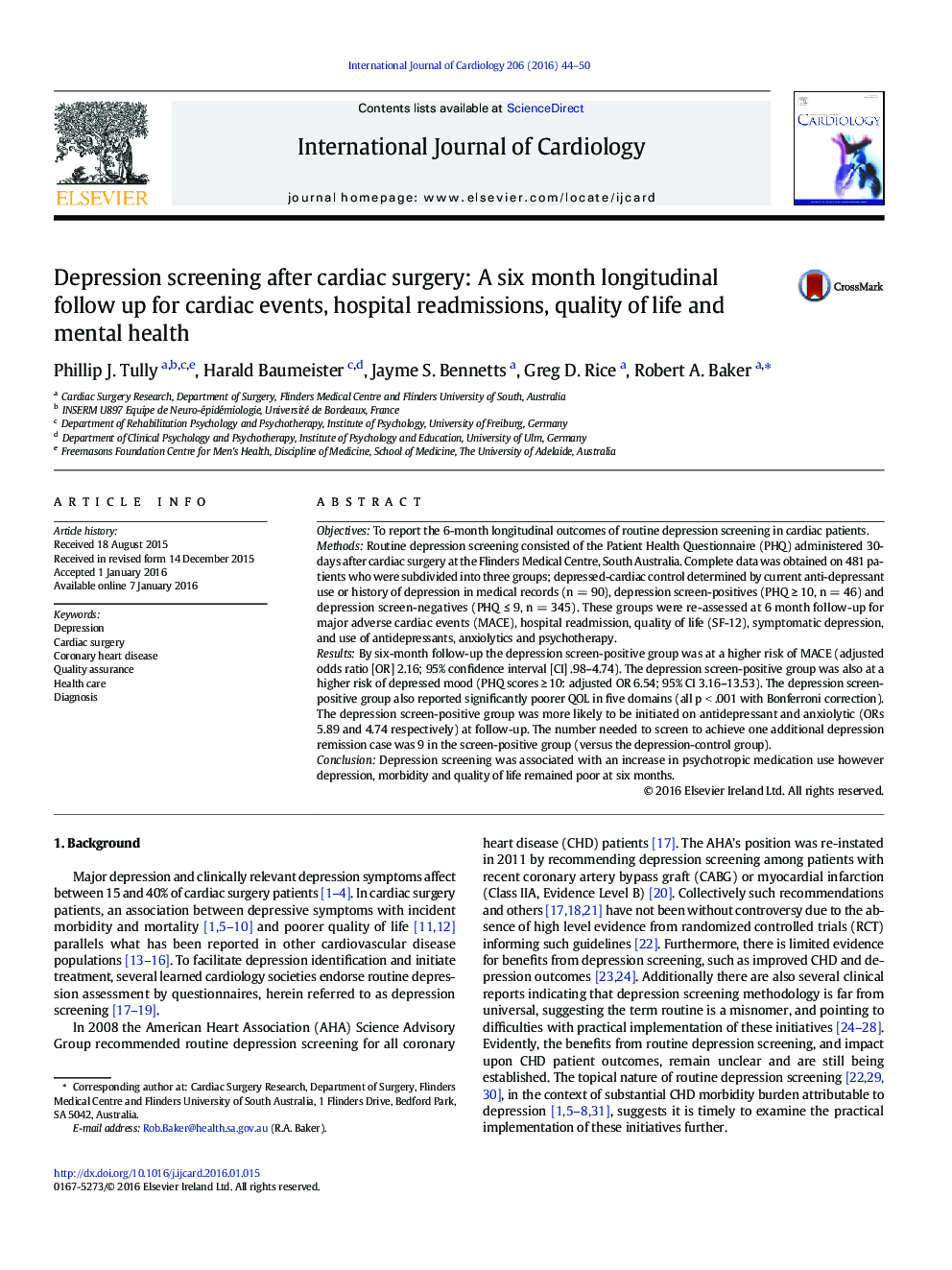| Article ID | Journal | Published Year | Pages | File Type |
|---|---|---|---|---|
| 2928748 | International Journal of Cardiology | 2016 | 7 Pages |
•Depression screening in CHD is not without controversy due to limited research.•The 6 month outcomes of depression screening after cardiac surgery are reported.•Patients identified by depression screening remained at risk of cardiac morbidity.•Patients identified by depression screening remained at risk of depression at follow-up.•There was evidence for increased antidepressant, anxiolytic and mental health service use.
ObjectivesTo report the 6-month longitudinal outcomes of routine depression screening in cardiac patients.MethodsRoutine depression screening consisted of the Patient Health Questionnaire (PHQ) administered 30-days after cardiac surgery at the Flinders Medical Centre, South Australia. Complete data was obtained on 481 patients who were subdivided into three groups; depressed-cardiac control determined by current anti-depressant use or history of depression in medical records (n = 90), depression screen-positives (PHQ ≥ 10, n = 46) and depression screen-negatives (PHQ ≤ 9, n = 345). These groups were re-assessed at 6 month follow-up for major adverse cardiac events (MACE), hospital readmission, quality of life (SF-12), symptomatic depression, and use of antidepressants, anxiolytics and psychotherapy.ResultsBy six-month follow-up the depression screen-positive group was at a higher risk of MACE (adjusted odds ratio [OR] 2.16; 95% confidence interval [CI] .98–4.74). The depression screen-positive group was also at a higher risk of depressed mood (PHQ scores ≥ 10: adjusted OR 6.54; 95% CI 3.16–13.53). The depression screen-positive group also reported significantly poorer QOL in five domains (all p < .001 with Bonferroni correction). The depression screen-positive group was more likely to be initiated on antidepressant and anxiolytic (ORs 5.89 and 4.74 respectively) at follow-up. The number needed to screen to achieve one additional depression remission case was 9 in the screen-positive group (versus the depression-control group).ConclusionDepression screening was associated with an increase in psychotropic medication use however depression, morbidity and quality of life remained poor at six months.
